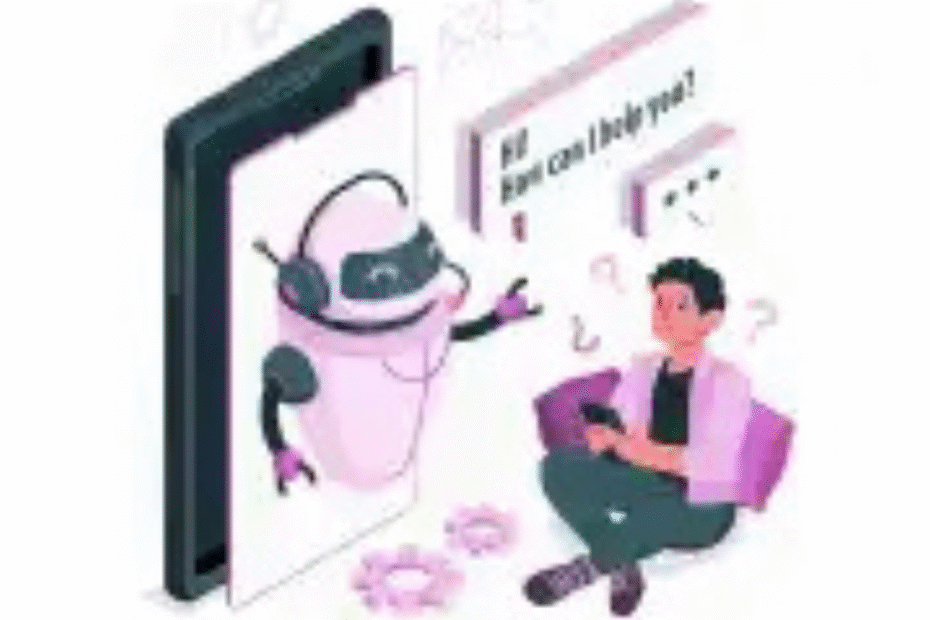In recent years, Artificial Intelligence has transformed the way companies interact with their customers. Solutions such as chatbots, virtual assistants, and intelligent automation are capable of interpreting behavior and providing responses in a matter of seconds.
Given this advance, it is natural to wonder: will AI completely replace human service?
However, as technology evolves, there is also a concern with the humanization of interactions, especially in more sensitive situations that require empathy, active listening, and discernment.
In this article, we will explore the current scenario of the use of Artificial Intelligence in customer service, present recent studies on consumer preferences, and explain why we believe that the future of customer service is hybrid: with technology as an ally, but without giving up the human factor. Shall we begin?
What Can Artificial Intelligence Do in Customer Service?
Artificial Intelligence is already used in customer service by the vast majority of companies. This is because it can optimize processes, improve the consumer experience, and significantly increase operational efficiency.
Here are some of the main functions that the technology already performs efficiently:
- Automatic responses to frequently asked questions: Because they are trained using robust databases, AI-based chatbots can answer simple questions, such as delivery times, product or service information, payment methods, or even exchange policies.
- 24/7 service: With AI, it is possible to offer service 24 hours a day, 7 days a week, ensuring that your customers have support at any time of the day.
- Call classification and screening: Some AI-based assistants are able to analyze message content and redirect customers to the appropriate channels or departments more efficiently, optimizing your operator team’s time.
- Sentiment analysis and natural language: More advanced models can interpret the customer’s emotional tone and adapt the response to the situation, offering more natural and empathetic interactions, even with automated responses.
- Internal process automation: As we highlighted earlier, AI also serves as a support tool for your team, cross-referencing important data, organizing information, and generating valuable insights.
In addition to making service faster and smarter, these applications ease the operational burden on human staff, who can then focus on more complex and strategic tasks.
Do Consumers Still Prefer Human Service?
Despite significant advances in Artificial Intelligence in recent years, most consumers still prefer human interactions, especially in more delicate or complex situations.
A survey conducted by PROCON-SP in 2024 showed that 97% of consumers who had automated interactions with chatbots or virtual assistants needed to be transferred to a human representative after receiving inaccurate or unsatisfactory responses.
In addition, a study conducted in 2023 by the consulting firm Gartner pointed out that 64% of people prefer that companies not use AI in their customer service, highlighting the difficulty of accessing a human attendant as one of their main concerns.
This data reinforces that, although AI is a valuable ally, offering agility and efficiency in simple customer service interactions, most consumers still value and prefer human contact.
Why Doesn’t Artificial Intelligence Replace Human Service?
As impressive as this technology is, it is still not capable of completely replacing human service. Here are the main reasons:
1. Limitations in contextual and emotional understanding
Although the most advanced AI models are capable of interpreting natural language and even identifying basic feelings, they are still unable to grasp complex contexts involving cultural nuances and deep emotions, which require empathy, moral judgment, and sensitivity.
2. Solving complex problems
Some consumer requests involve specific questions and situations that are outside the norm. In these cases, human service is irreplaceable thanks to its capacity for critical analysis, creativity, and empathy.
3. Technical errors and limitations
Even the most sophisticated AI systems can have flaws, such as inaccurate responses, misinterpretations, and technical limitations that ultimately lead to customer frustration.
How Jivo combines Artificial Intelligence and Human Service
Here at Jivo, we believe that the future of customer service lies in a hybrid model, combining the best of technology with human sensitivity. Our solution uses an AI chatbot to automate repetitive tasks, answer simple questions, and qualify leads, ensuring speed and efficiency.
However, when we detect that the situation requires more attention and a higher level of care, the conversation is immediately transferred to a human agent trained to resolve the issue in a personalized and empathetic manner.
This allows us to increase your team’s productivity without losing the quality of human contact that your customers value so much.

